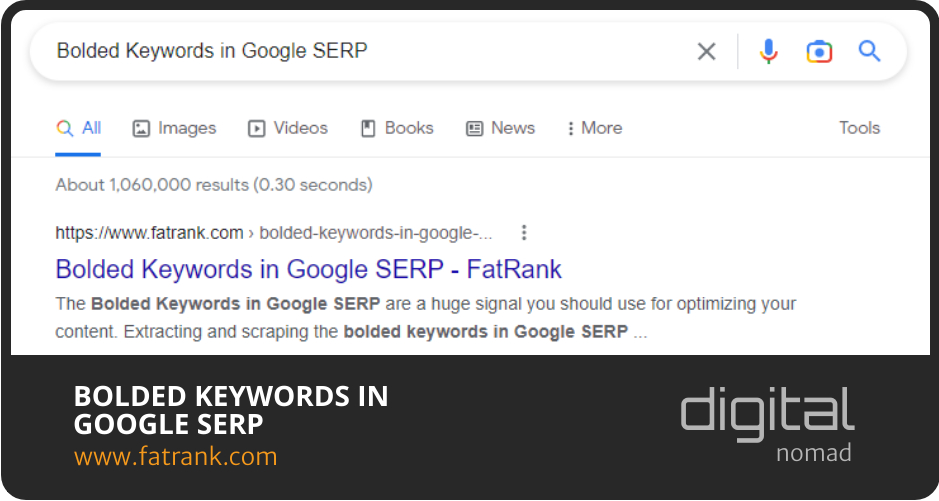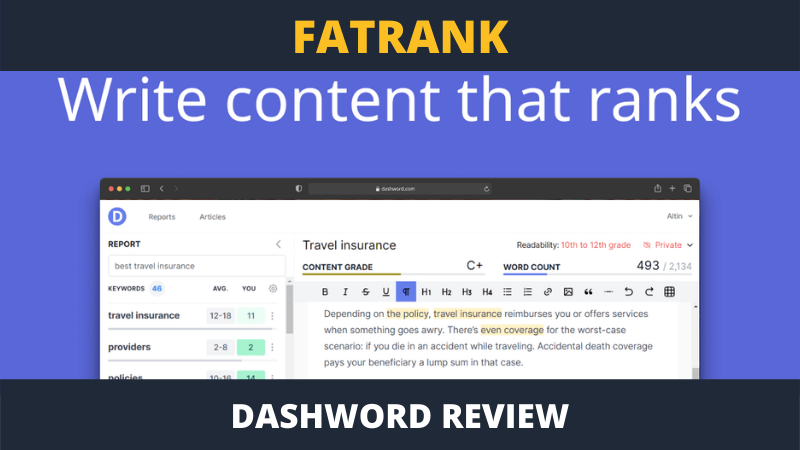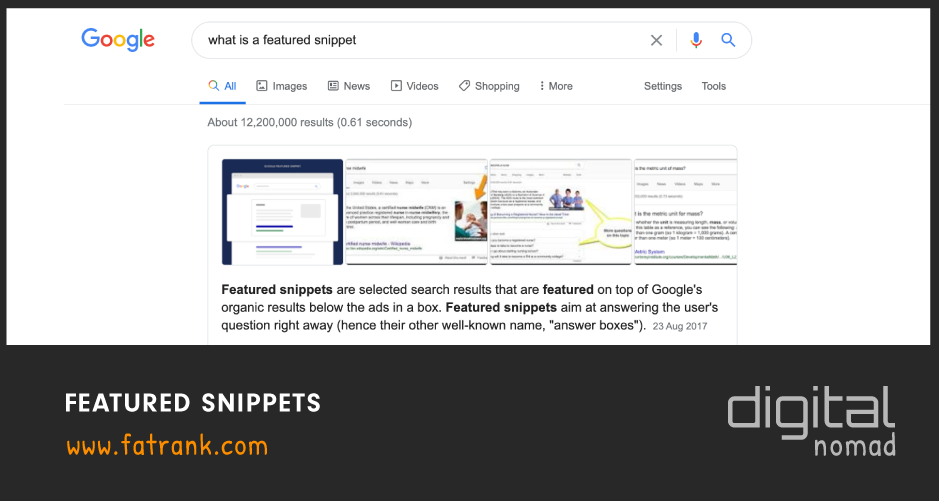
OnPage Content Latent Semantic Indexing
Back in the day SEO was easy and you placed your target keyword in the title, URL and few times in the content to rank.
Now in July 2024 the semantic search engines have evolved to understand topics – not keywords.
Semantic SEO as it is now called is the search engine optimisation strategy to optimise based on related topics.
Specialist SEO Tools like MarketMuse and SurferSEO have created SEO semantic writing Artificial Intelligence (AI) to help you improve your content scores.
Google updates like RankBrain in 2015 and Hummingbird Google Update have moved the goalposts from optimising for keywords to topical clusters.
Let us dive in because there are many questions and reasons semantically related content is better for the users.
Contents
Is Semantic SEO Better?
Google is a semantic search engine and now can understand the content on a page better and match it to search intent.
Keywords on a page do not determine that to be the best answer to a query.
Google understood users have questions, and Google connects them to the most relevant content that answers that search query using semantic SEO.
There are a number of reasons why search engines use LSI to return results to the user, and why it’s good to include this in your strategy:
- It helps Google get the meaning of the written content. It also deals with search relevancy.
- Including LSI keywords with main keywords is SEO friendly.
- In earlier days, search engines used the exact search query to get results. With this, search engines were not giving accurate results.
- Now, search engines analyze the meanings of the search queries. The content synonymically linked to the search query, are also returned.
- Google mainly carried out this to fight spammers trying to cheat the search engine by using keyword stuffing.
What Is Semantic SEO?
Semantic SEO is about topics and their relationships to satisfy the search intent of the users searching in Google.
Topics are the new keywords.
When writing for the semantic web, think beyond keywords and start focusing on topics.
The improvements in the semantic search engines have allowed Google to provide relevant content that unambiguously answers a specific user intent.
For SEO content writers or SEO copywriters to rank high in the SERPs, you need to cover the whole topic and answer the query your customers might be searching for.
The best SEOs understand the importance of on-page content latent semantic indexing and integrating LSI keywords to their content structure.
LSI For SEO
If you are unaware of OnPage Content Latent Semantic Indexing you must have been hiding under a rock for many years.
If you want to become an expert in how to properly optimise your content you need to do the following:
- Research the most important subtopics to incorporate into your content plans
- Find onpage content gaps in your competitors content
- Find and answer questions your customers are asking (using People Also Ask and niche related forums)
- Silo and internal link all your related content on the subject matter
The latent semantic indexing keywords allow you to theme the topic of a page and assist you to rank for lots of various key phrases.
When covering a topic in its entirety a single webpage can rank for thousands of keywords with the optimisation of semantic SEO.
What is Latent Semantic Indexing?
Latent Semantic Indexing is an indexing and retrieval method used by search engines to better understand search intent.
LSI uses a mathematical technique called singular value decomposition (SVD) to identify patterns in the relationships between the terms and concepts contained in an unstructured collection of text.
Finding related topics to the search query and implementing LSI keywords into your on-page strategy is advanced methods to scoring your content higher.
Latent Semantic Indexing is NOT just using synonym variations like best, top, great, amazing as many times as you can keyword stuff into your article. But it is carefully crafting related topics to your subject.
Lexical Analysis
Lexical analysis is the first phase of a compiler.
It takes the modified source code from language preprocessors that are written in the form of sentences.
The lexical analyzer breaks these syntaxes into a series of tokens, by removing any whitespace or comments in the source code.
The lexical analysis is the term for LSI which Google uses to cluster words together which means the same thing.
Reduces Over Optimisation Penalties
Why do I personally feel that this on page method of grouping keywords is vital in the future of search engine optimisation? This is simply because Google is applying over optimisation penalties to millions of websites.
Many of you will not even know you are receiving this penalty which could just be a drop of several rankings in the SERPs.
However, in some circumstances, this could mean millions of pounds of revenue lost. In order to improve your on-page SEO strategy, you should be swapping some of your most used keywords for LSI words instead. This prevents Google Hummingbird from penalising you for keyword stuffing.
It also shows Google that your site’s page is a quality result for the user.
The best advice is to think about the user and what questions they might have before and after the query, they are currently studying.
Lowering Keyword Density
Make sure that you don’t completely remove your target keyword from the page. This will have a negative effect, simply use other synonyms to bring your keyword density down.
Although semantic SEO surrounds the use of topics then keywords on a page are still important to be mentioned on a page.
The best techniques are repeating your focus keyword several times in the content. But after this, start to use synonyms to diversify.
Keyword Density is a term that refers to the percentage of times a certain word or phrase appears on a page when compared with the total number of words. This metric has changed drastically in the past 6 years from what has been taught.
Many years ago I clearly remember people telling me to just place the focus keywords into the content 5-7 times. This will be great for helping your rankings because repeating it makes Google understand what this page is talking about.
Nowadays keyword density is not at the forefront of content optimisation and covering the whole topic is more important to concentrate on.
Perfect Keyword Density Percentages
There are no perfect keyword density percentages.
The use of keywords and topics vary from niche to niche and this is why we suggest using tools like MarketMuse to create your content briefs.
Many years ago big influencers in the SEO world were saying your keyword density should be around 1% or some training content writers to include 2% keyword ratio.
As Google has improved semantically you really need to move away from keyword density ratios and look at topical clusters.
A topic is a new keyword in the semantic web.
Use Thesaurus To Replace a Word
If you are ever struggling for synonyms to use within your content use thesaurus here to assist the use of new keyword variations.
Having a creative writing style to explain and demonstrate your message with the use of various keywords helps the content flow nicer.
You can search the Thesaurus for a better synonym for what you currently have in the documents.
Planning your Content Strategy
As well as thinking about which keywords and phrases to target with your on-page content, you also need to think about the types of words and phrases that you want to include.
This means you need to decide what the purpose of that page is, and what it does for the user. Is it purely there to provide information about a topic? Or is it there to get people to enquire and buy a product or service. Take a look at this post which explains the three main types of keywords for on-page SEO and how to use them.
Be one step ahead and make sure to put your OnPage Content Latent Semantic Indexing strategy into practice. This can help you benefit from the best rankings possible in the SERPs. You will hear SEO is Dead plenty of times in your career but take this with a pinch of salt.
It will never be dead but will certainly change and need you to adapt your strategies. Make them suit the latest algorithms but using LSI will certainly keep you a step ahead of the game.
Final Thoughts
Content strategists need to Research Semantically Related Topics when planning their content plans.
MarketMuse can within minutes create a full content brief to cover the page topic comprehensively.
There certainly are other LSI Tools available like:
- Manual google search to find related searches
- LSI Graph
- KeywordTool.io
These LSI Tools will all find the similarity in keywords you search but there’s just not enough topic breadth to create something of high quality.
Many content writers have jumped on the bandwagon of correlating content to what is currently ranking on the first page of the SERPs (which is good to help find content gaps your competitors have covered). But we strongly recommend the information gain google patent technique in providing more help within your articles.
Information gain scores indicate how much more information one source may bring to a person who has seen other sources on the same topic. Pages with higher information gain scores may be ranked higher than pages with lower information gain scores.
As on-page SEO optimisation has become more complicated in the age of semantic SEO you need to be looking at best practices to have the highest information gain scores.
Keyword stuffing no longer helps content rank in organic search so get rid of your keyword density tools and look at topical models.
Focus on covering all related topics in-depth, providing concise answers to the questions asked, and filling the content gaps in competitive pages.
All SEO Related Posts
Check out the in-depth list of SEO posts.
- Absolute Links vs Relative Links

- AI Content Detection

- AI Copywriting Software

- Artificial Intelligence For Content Writing

- Autoblogging AI Review

- Bolded Keywords in Google SERP

- Content Briefs

- Content Cannibalisation Google Penalty

- Content Decay

- Content Doctor

- Content Expansion

- Content Harmony Review

- Content Plan Roadmap

- Content Strategist

- Content Team

- Dashword Review

- Featured Snippets

- Focus Keyphrase

- Google Duplicate Content Penalty

- Google Fresh Content Ranking Factor

- How To Create A Topical Map

- Identify The Root, Rare, and Unique Attributes Of An Entity

- Jasper.ai Free Trial

- Onboarding Writers

- One Page For One Corpus

- Ordering Content SOP

- Page Optimizer Pro

- Page ReWriter Review

- Passage Ranking

- Progressive Content Optimisation SEO

- Search Perspective Frameworks

- SEO Avalanche Technique

- SEO Content Audit Guide

- SEO Content Optimization Tools

- SEO Content Writers

- Silo Internal Linking

- Standalone Content

- Stealth AI Writer

- Surfer AI Writer

- Surfer SEO Review

- Text Optimizer

- Text Structure

- The SEO Power of Concise Writing

- Topical SEO - Create Supporting Articles

- Use Topic Review

- Website Content Uploader

- Why Is Content Veggie The Best AI Content Tool for SEO?

- Workello

The full list shows the various SEO strategies to help your online marketing knowledge grow fast in July 2024.

About FatRank
Our aim to explain and educate from a basic level to an advanced on SEO and Social Media Marketing.
